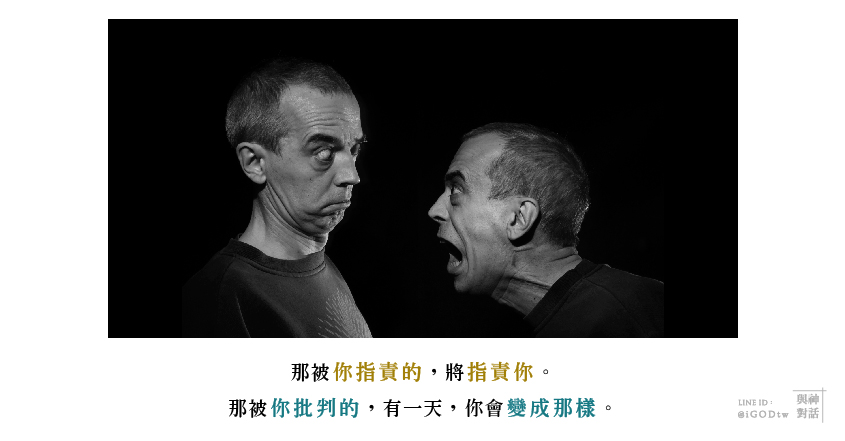
【神對人類所謂「應不應該」問題的看法與建言】
痛苦是來自你對一件事做出的判斷。去掉判斷,痛苦便消失。判斷往往建立在先前的經驗上。你對一件事的想法,出自你對那件事先前的觀念。而你先前的觀念是一個更先前的觀念所產生的結果——而那觀念又來自另一個更先前的觀念…
所有的思維都是具創造性的,而並沒有一個思維比「原始思維」更強大。那就是為什麼有時候它也被稱為「原罪」…
尼爾:你是說我不該對非洲餓死的小孩、美國的暴力和不公、造成巴西上百人死亡的地震覺得難過嗎?
在神的世界裡(一切都是神的世界),沒有什麼「應該」或「不該」。只是做你想做的事,做能反映出、能展現出一種「更高版本的你自己」的事。如果你覺得應該為這些事情難過,就難過吧。
但不要去批判,也不要去指責,因為你並不知道事情為何發生,也不知道是為什麼目的發生。
並且記住這一點:那被你指責的,將指責你。那被你批判的,有一天,你會變成那樣(that which you condemn will condemn you, and that which you judge, you will one day become)。

不如,想辦法去改變那些事,或去支持正在改變那些「不再反映你最高意義的你是誰的事」的人。
然而,祝福一切——因為一切都是神的創造,經由活生生的真實生活,而那是最高的創造。
摘自《與神對話 I》第1章

Pain results from a judgment you have made about a thing. Remove the judgment and the pain disappears. Judgment is often based upon previous experience. Your idea about a thing derives from a prior idea about that thing. Your prior idea results from a still prior idea—and that idea from another, and so forth, like building blocks, until you get all the way back in the hall of mirrors to what I call first thought.
All thought is creative, and no thought is more powerful than original thought. That is why this is sometimes also called original sin.
Neale: Are you saying that I shouldn’t feel bad about the starving children of Africa, the violence and injustice in America, the earthquake that kills hundreds in Brazil?
There are no “shoulds” or “shouldn’ts” in God’s world. Do what you want to do. Do what reflects you, what re-presents you as a grander version of your Self. If you want to feel bad, feel bad.
But judge not, and neither condemn, for you know not why a thing occurs, nor to what end.
And remember you this: that which you condemn will condemn you, and that which you judge, you will one day become.
Rather, seek to change those things—or support others who are changing those things—which no longer reflect your highest sense of Who You Are.
Yet, bless all—for all is the creation of God, through life living, and that is the highest creation.

